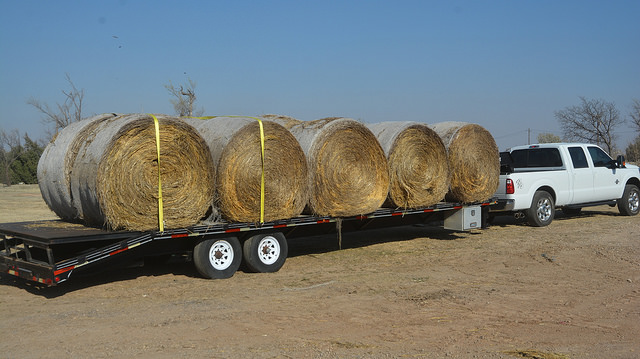You may recall that last month, Beth Rumley from the National Ag Law Center and I published a fact sheet outlining the steps to analyze if various Federal Motor Carrier Safety Administration (FMCSA) regulations would apply. Given some new legislation and some additional guidance from FMCSA, we have now made important revisions to the fact sheet.

You can access the most recent version of our publication here.
The major modifications include the following:
(1) FMCSA granted an additional 90-day waiver of the electronic logging device rules to anyone hauling “agricultural commodities.” The definition of “agricultural commodities” includes commodities, unprocessed food, feed, fiber, or livestock and insects. This waiver is now in place through June 18, 2018. Haulers should print a copy of this waiver and keep it in their vehicle to present to law enforcement if requested.
(2) In the Consolidated Appropriations Act, 2018, Congress included a provision that authorities will not enforce the electronic logging device requirement for persons hauling livestock or insects through September 30, 2018.
(3) In various guidance documents like this and this, the FMCSA has taken a narrower view of what constitutes “commerce” than the regulatory language. For drivers, this means that more trips may fall outside the FMCSA understanding of commerce, and for which the FMCSA rules do not apply. Although the regulatory language defining “commerce” is extremely broad, “trade, traffic, or transportation in the United States,” the guidance seems narrower and says that vehicles that are “non-commercial” or “not business related” or the driver is “not engaged in underlying business related to the move” commerce is not present and the FMCSA regulations are inapplicable. One example given by FMCSA of a non-commerce situation to which regulations would not apply would be a cattle rancher hauling horses for personal use that is unrelated to the cattle ranch.
(4) The requirement to have an electronic logging device under FMCSA regulations applies only if the driver is traveling in interstate commerce.
Again, this is an extremely complicated and still-changing area of law. We would recommend that anyone concerned visit with the Department of Transportation in your state and with an attorney licensed in your jurisdiction to ensure compliance with all federal and state hauling laws.












